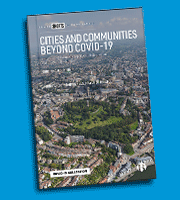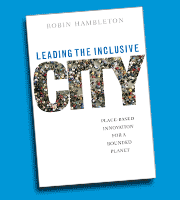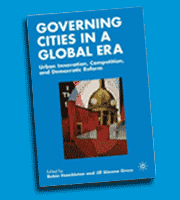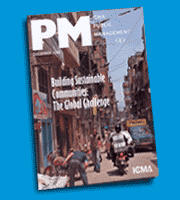Place-based leadership
Place matters to people. In modern society place is not, by any means, the only source of identity and meaning – we all have multiple attachments. And, in the modern multicultural city, many people have feelings of connection that span international frontiers and continents.
The governance of a place can, however, have a profound effect on the quality of life in a place. This section provides some writings on place-based leadership.
Place-based leadership in a globalising world
This article, published in the Commonwealth Journal of Local Governance, sets out an international argument for strengthening place-based leadership. It discusses the shift from 'government' to 'governance' that is taking place in many countries, and argues that changing demands require the development of a more outgoing approach to local leadership. Freiburg, Germany, is one of the most successful eco-cities in Europe and the article provides a short case study of the achievements of the city. This shows how imaginative place-based leadership has played a vital role in promoting bold innovation.
Click here to view the full article
Civic leadership for Auckland
The Royal Commission on Auckland Governance was set up by the New Zealand Government in 2008 to provide recommendations on how to improve the governance of the metropolitan area of Auckland. Robin Hambleton was appointed as an Adviser to the Commission and prepared this paper as an input to the deliberations of the Commission. It recommends strengthening the civic leadership of the entire metropolis by introducing a directly elected mayor and associated reforms. The Royal Commission recommended introducing a directly elected, metropolitan mayor and the government accepted this part of their advice. The first directly elected mayor of Auckland was elected in November 2010 and this paper sets out some of the reasons why New Zealand reformers adopted this approach.
Click here to view the full article
US-style leadership for English cities?
This article, co-authored with Dr David Sweeting, examines the political management models introduced by the UK Labour Government into England in the early 2000s. This effort to 'modernise' local government aimed to strengthen local leadership, and included the bold step of introducing directly elected mayors into the British system of local governance for the first time. First published in the American journal, Public Administration Review, the article explores the extent to which the reforms represented an Americanisation of English local government.
Click here to view the full article





